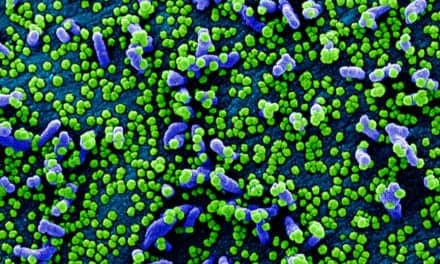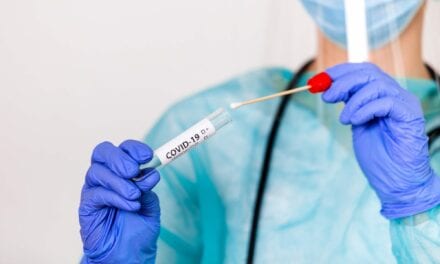A peer-reviewed study has shown that DetectR, a clustered regularly interspaced short palindromic repeats (CRISPR)-based diagnostic from Mammoth Biosciences, South San Francisco, Calif, is effective at detecting SARS-CoV-2 from respiratory swab RNA extracts in less than 45 minutes.1
The study contains the first peer-reviewed data using CRISPR diagnostics for covid-19, with the largest set of patient samples to date. CRISPR offers a faster, lower-cost, and visual alternative to traditional quantitative reverse transcription polymerase chain reaction (qRT-PCR) assays, which have a typical turnaround time of at least 24 hours.
The new test delivers results visually on a lateral-flow test strip, similar to a home pregnancy test, and does not require a laboratory setting—it can be performed with portable heat blocks and readily available ‘off-the-shelf’ reagents and disposable lateral-flow test strips. The assay offers similar levels of sensitivity and specificity to qRT-PCR tests, with 95% positive predictive agreement and 100% negative predictive agreement.
“We need faster, more accessible, and scalable diagnostics. The point-of-care testing space is ripe for disruption, and CRISPR diagnostics have the potential to bring reliable testing to the most vulnerable environments,” says Janice Chen, PhD, chief technology officer at Mammoth Bioscieces. “Because CRISPR can be programmed to detect any DNA or RNA sequence, we have been able to reconfigure our DetectR platform within days to detect the SARS-CoV-2 virus from one of the first confirmed cases in the United States.”
For more information, visit Mammoth Biosciences.
Reference
1. Broughton JP, Deng X, Yu G, et al. CRISPR-Cas12-based detection of SARS-CoV-2. Nat Biotechnol. Epub April 16, 2020; doi: 10.1038/s41587-020-0513-4.




